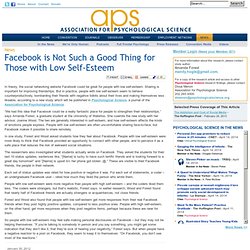

Could You Be Addicted To The Internet? [POLL] Unlike drugs and alcohol, excess Internet usage could help your career, make you more informed and keep you up-to-date with the latest hilarious memes.
![Could You Be Addicted To The Internet? [POLL]](http://cdn.pearltrees.com/s/pic/th/internet-overuse-structural-21495788)
But a recent (small) study by researchers in China showed that too much Internet usage — to the point that it's an addiction — can cause structural damage to your brain. The researchers studied 17 adolescents with Internet Addiction Disorder (IAD) and found structural and functional interference in the part of the brain that regulates organization, possibly causing cognitive impairment similar to that caused by gambling and alcoholism. Here's the science behind it: White matter is composed of nerve cells, while the gray matter that we hear so much about is made up of cell bodies.
Myelin is a type of fat in the white part (nerve-heavy area) of the brain. This fat insulates the white matter in the brain and makes the transmission speed between nerve signals fast. Are you addicted to the Internet? Google Brain: Are We Losing Our Memory to the Search Giant? Google is great for looking up words, finding movie times or perusing recipes, but recent research out of Columbia University shows our dependence on Internet search may be hurting our memory.

The Internet has replaced our brain's ability to remember information we could easily search for online, a study led by neuroscientist Betsy Sparrow shows. While we heavy Internet users remember where to search for information, we have forgotten information itself. Just as computers use external hard drives to store information, our brains use the Internet as a back up. Many of us are rarely without an Internet connection, meaning we can rely on the memory of where we read something online. As a result, we often forget information we don't think we will need again. "People actively do not make the effort to remember when they think they can look up information later," the study's authors write. Furthermore, we go into withdrawal when we can't find something online.
Facebook Friend Count Linked to Brain Structure [STUDY] All those hours you spend on Facebook may be adding grey matter, signifying greater density, to the part of your brain linked to social skills.
![Facebook Friend Count Linked to Brain Structure [STUDY]](http://cdn.pearltrees.com/s/pic/th/facebook-friend-linked-density-17511419)
Or, perhaps, people with larger areas of the brain for social skills may just have higher than average Facebook friend counts. That's the chicken-and-egg problem researchers at University College London are grappling with after finding a connection between brain structure and Facebook activity. The study, published in Proceedings of the Royal Society B, was based on MRIs of a group of 165 adults who were asked to report the number of Facebook friends they have. (The study doesn't delineate what is considered "high," though it refers to Dunbar's Number, which postulates 150 friends is the limit of the average person's social circle.)
Professor Geraint Rees, director of the Institute of Cognitive Neuroscience at UCL, told The Guardian it's too early to tell how the structure of the brain and online social networking activity are connected. '+windowtitle+' News In theory, the social networking website Facebook could be great for people with low self-esteem.

Sharing is important for improving friendships. But in practice, people with low self-esteem seem to behave counterproductively, bombarding their friends with negative tidbits about their lives and making themselves less likeable, according to a new study which will be published in Psychological Science, a journal of the Association for Psychological Science. “We had this idea that Facebook could be a really fantastic place for people to strengthen their relationships,” says Amanda Forest, a graduate student at the University of Waterloo. She cowrote the new study with her advisor, Joanne Wood. In one study, Forest and Wood asked students how they feel about Facebook. The researchers also investigated what students actually wrote on Facebook. Each set of status updates was rated for how positive or negative it was.